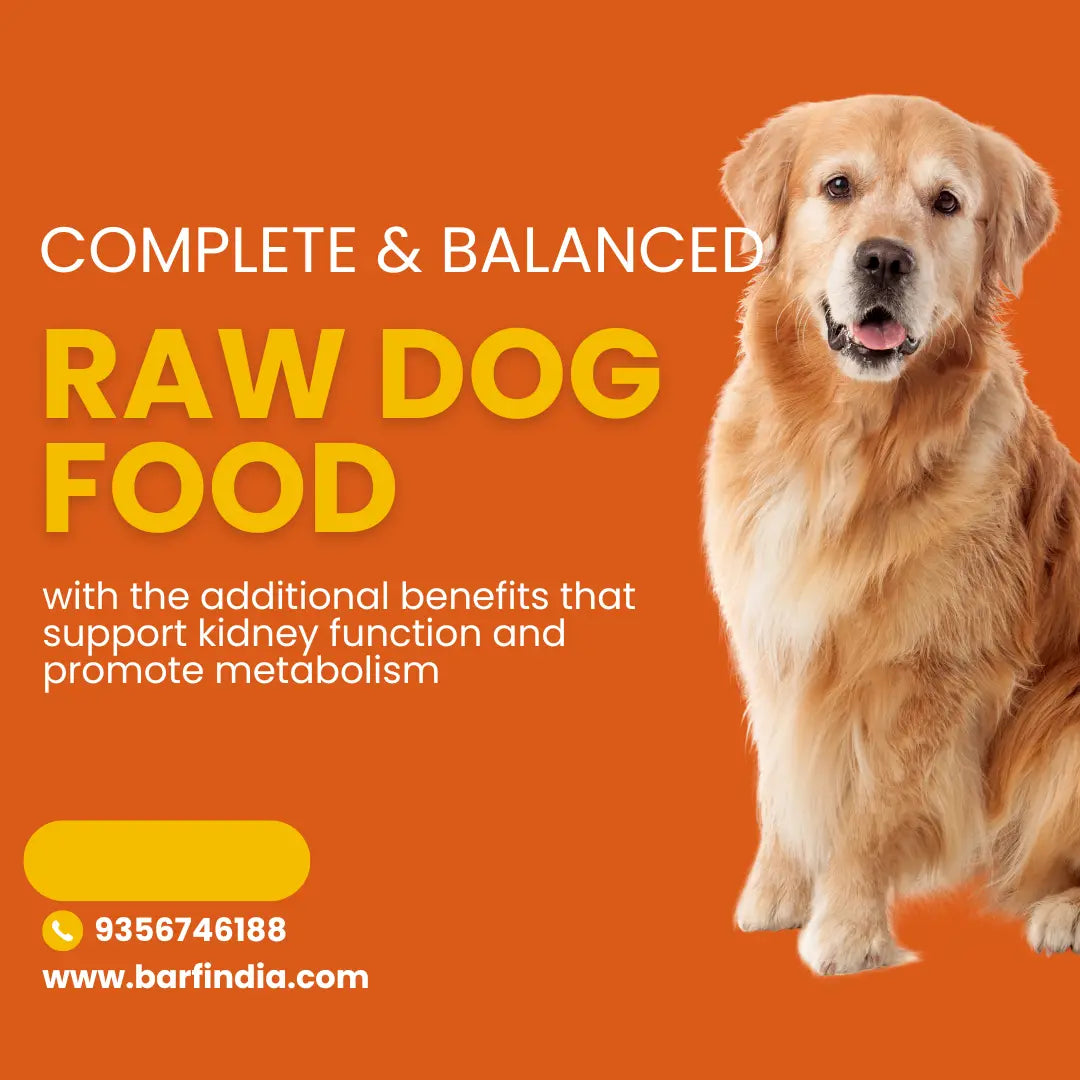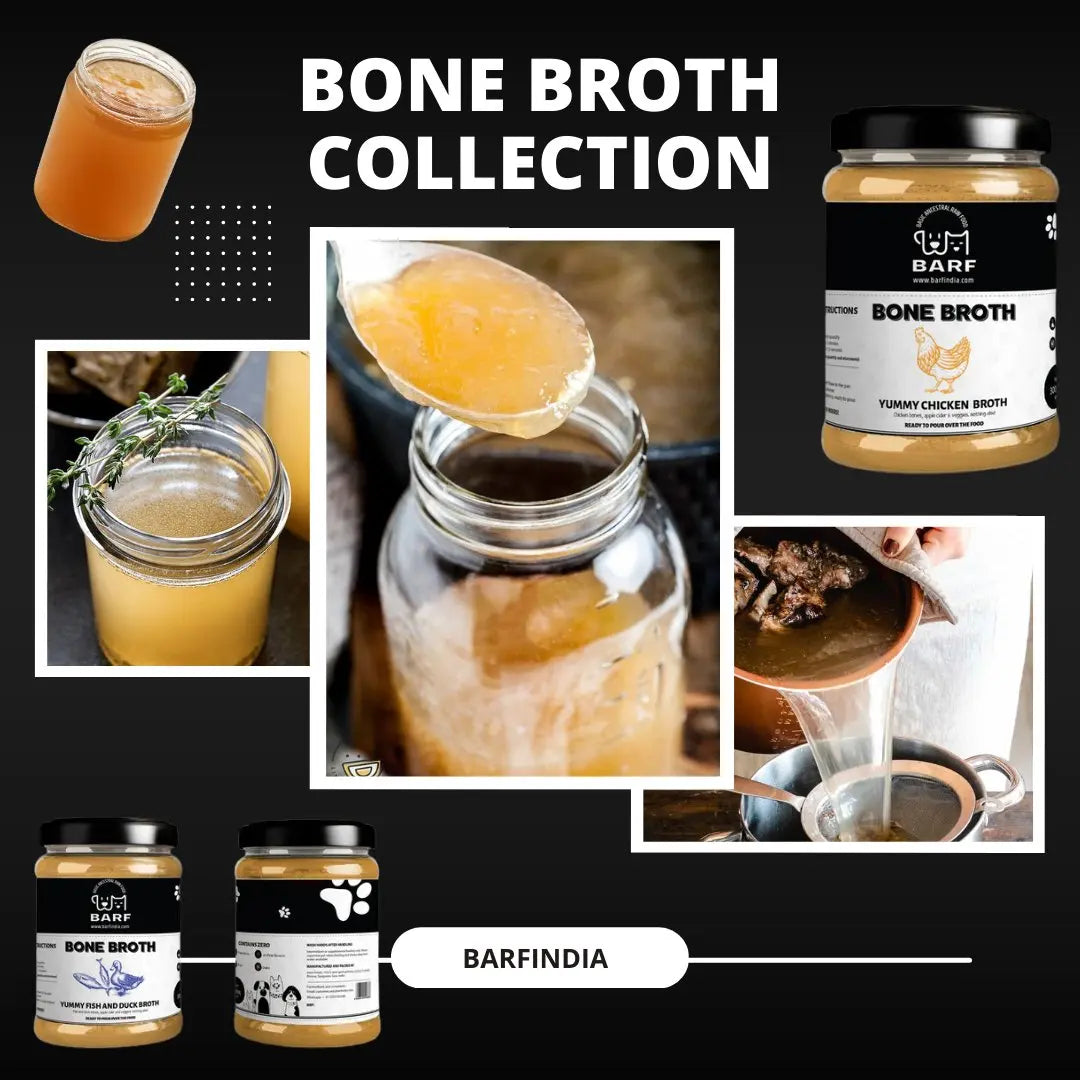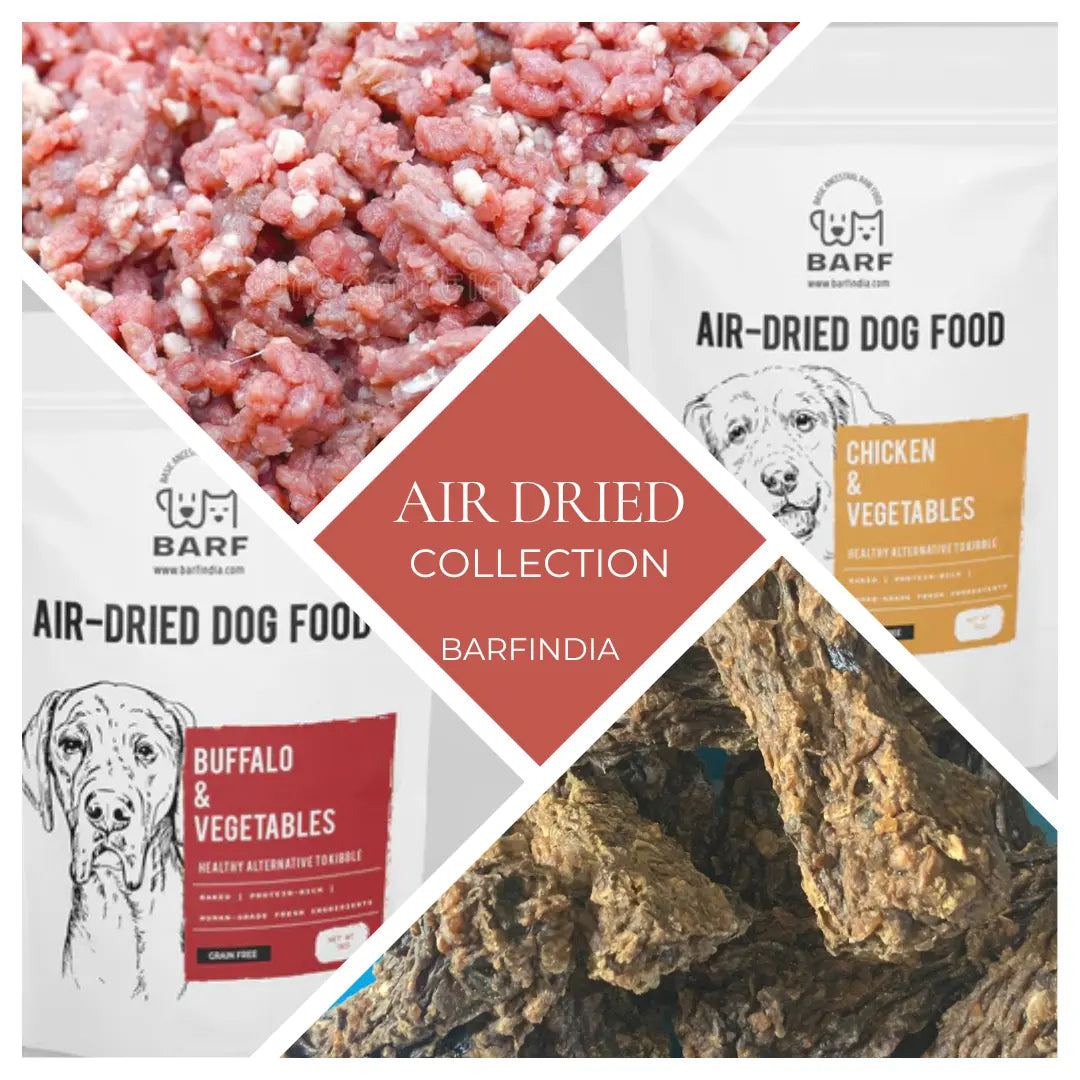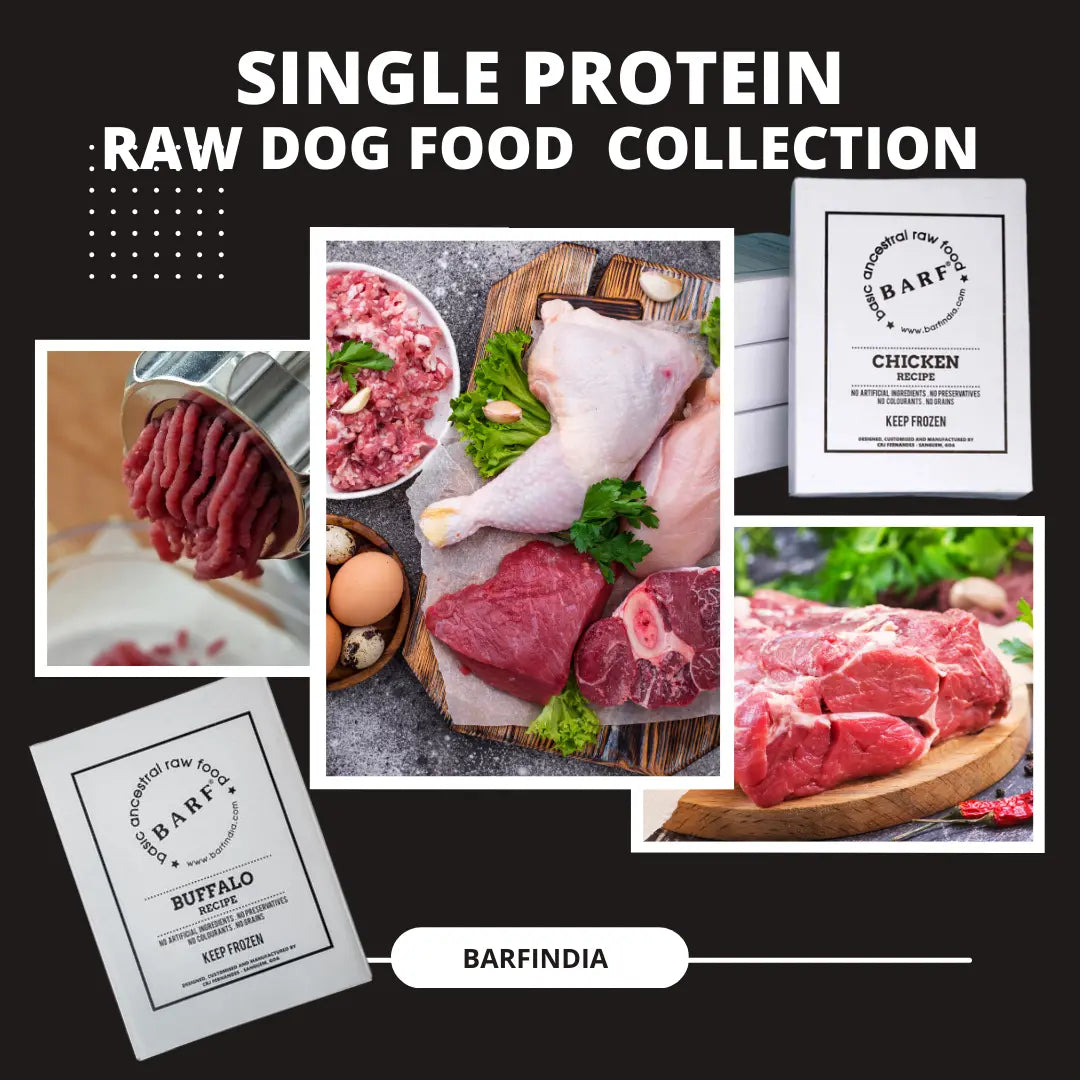
Can a domesticated dog eat and digest Raw Food?
B.A.R.F. India AdministratorCan a Domesticated Dog Eat and Digest Raw Food?
Understanding How Dogs Digest Raw Food Naturally
Raw food is often misunderstood, especially when it comes to feeding our beloved pets. If you’ve been a pet parent for a while, you already know that your dog’s digestive system plays a crucial role in his overall well-being. But here's a truth not many talk about: it’s the digestive system that determines how well your dog can process, absorb, and thrive on what he eats. And that brings us to the core question—can a domesticated dog really eat and digest raw food? The answer lies in understanding your dog’s gut, its design, and how it’s perfectly built for a raw diet.
A Quick Look at Your Dog’s Digestive System
Let’s take a moment to revisit some basic biology from our school days. The digestive system begins in the mouth—teeth, tongue, salivary glands—and continues down the esophagus, a pipe that carries food to the stomach. This leads to a sac-like stomach, followed by the long tube called the small intestine, which is made up of three parts:
-
Duodenum
-
Jejunum
-
Ileum
These sections play specific roles in food absorption:
-
The Duodenum connects to the pancreas and gall bladder via ducts. Digestive fluids mix with food here to begin the breakdown.
-
The Jejunum, lined with tiny finger-like structures called villi, increases surface area for nutrient absorption.
-
The Ileum passes processed contents into the large intestine, which removes water and prepares waste for elimination through the colon, rectum, and anus.
How Dogs Digest Food—Especially Raw Food
The raw food digestion process begins with enzymes. These enzymes, primarily from the pancreas, break down food into nutrients that convert into energy. Meanwhile, your dog’s stomach acid, with its extremely low pH of 1–2, is capable of breaking down bones and neutralizing harmful bacteria—something processed foods don’t account for.
Feeding your dog chemically preserved, starchy, or grain-heavy food interrupts this system. These foods increase stomach pH, which weakens digestion, prevents enzyme activity, and leaves room for harmful bacteria to thrive. This is why raw food is not only digestible—it’s actually more aligned with your dog’s biology.
Why Raw Food Works for Dogs
Your dog, while domesticated, shares over 98% of his DNA with wolves. Wolves don’t hunt for cooked meals. They thrive on raw meat, bones, organs, skin, and a bit of vegetation. So, why should your dog be any different?
He’s a facultative carnivore, meaning meat is essential, but he can handle small plant matter too. His gut is designed to process raw meaty bones, organs, and nutrient-rich animal fat—not grains, synthetic vitamins, or carbs that come from processed dog food. By feeding commercial food, we’re moving away from his natural dietary instincts, often leading to digestive issues, skin problems, and weakened immunity.
Switching to a Raw Food Diet: What to Expect
If you’re thinking about making the switch to raw food, start slow and stay informed. Here are some signs and considerations:
-
Food allergies may surface—monitor your dog or run an allergy test.
-
Ensure a balanced raw diet: variety in meats, bones, organs, and vegetation is key.
-
A sudden switch may cause temporary digestive upsets if your dog has a sensitive gut or low immunity.
-
Observe poop changes: it’s normal at first. Your dog’s stool will adjust and often become smaller, firmer, and less smelly on a raw diet.
Note: If you need help, our team can guide you through a tailored transition plan. You can also read our blog: How to Transition Your Pet to a Raw Diet.
Is Your Dog Allergic to Raw Food?
Most pet parents panic if their dog shows discomfort after switching to raw food. But don’t jump to conclusions. It’s like when we ditch junk food and start eating clean—our gut takes time to adapt. Once your dog adjusts, you’ll notice:
-
Shinier coat
-
Healthier stool
-
Fewer allergies
-
Increased energy
-
Stronger immunity
These are not marketing promises—they’re biological outcomes of returning to a diet your dog was meant to eat.
Final Thoughts: Yes, Dogs Can Digest Raw Food!
So, can a domesticated dog eat and digest raw food?
Absolutely. Not only can he digest it, but he thrives on it. From his teeth to his tail, your dog is naturally equipped to process raw animal proteins, fats, and essential micronutrients in ways processed kibble never can.
We understand every dog is different. That’s why we customize raw food diets for individual dogs, based on age, breed, allergies, and activity levels.
Want your dog’s tummy to be truly happy and healthy?
Switch to raw. And if you’re unsure how—email us at admin@barfindia.com and we’ll help you get started!



